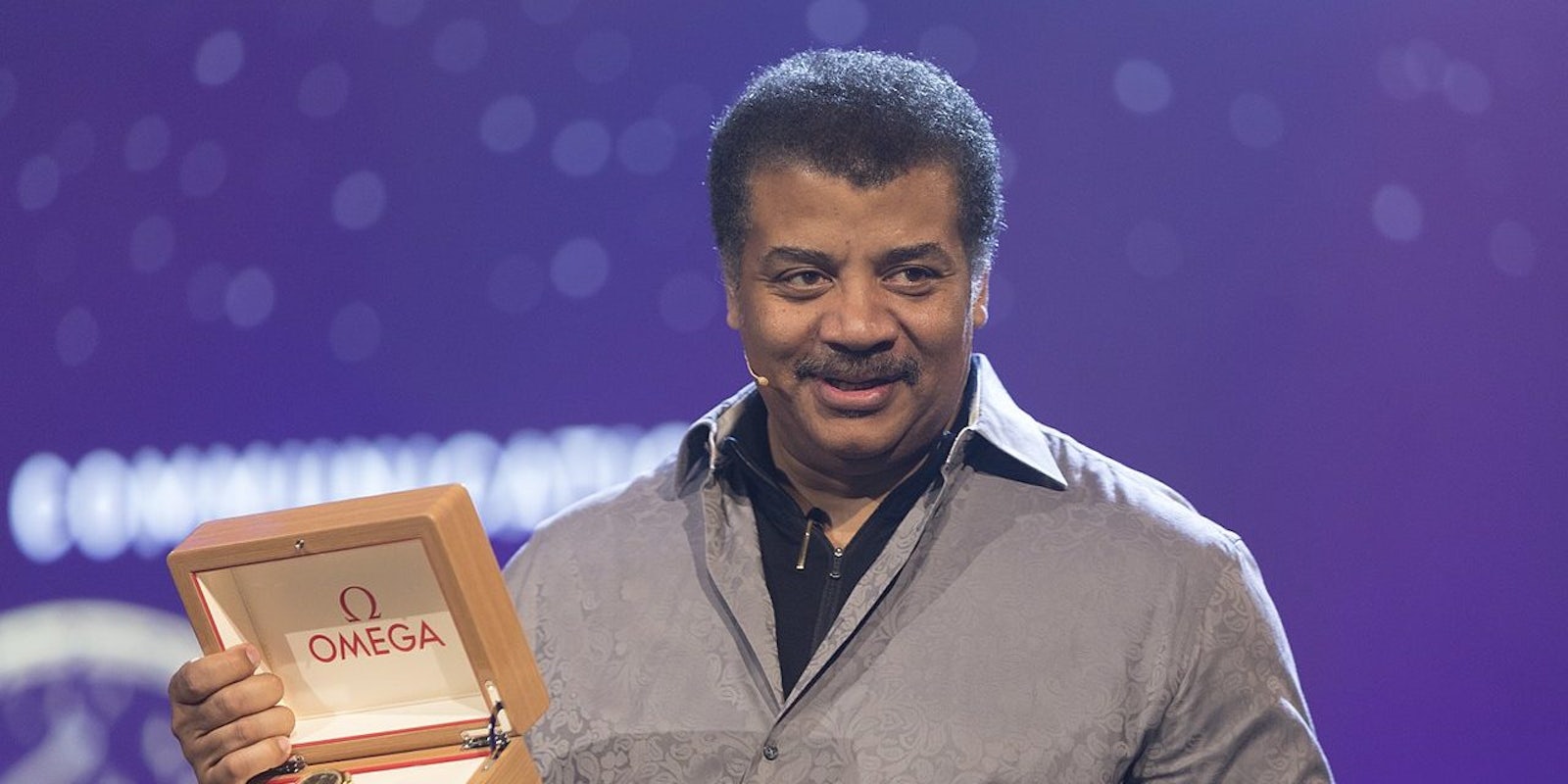Science educator Neil deGrasse Tyson, once a beloved public figure, is now more likely to make headlines due to sexual assault allegations or offensive tweets. Today he’s facing backlash for posting a bizarre response to the recent spate of mass shootings, arguing that compared to other forms of preventable death, relatively few people die from gun violence.
Tyson is the reigning king of “well actually” Twitter, known for debunking popular misconceptions and critiquing scientific inaccuracies in movies and TV. He’s often mocked for being a stereotypically humorless nerd, but this tweet ups the ante with a total lack of understanding for gun-related trauma. Highlighting the death toll of the weekend’s shootings in El Paso, Texas, and Dayton, Ohio, he pointed out that many more people die from other causes, and “often our emotions respond more to spectacle than to data.”
In the past 48hrs, the USA horrifically lost 34 people to mass shootings.
— Neil deGrasse Tyson (@neiltyson) August 4, 2019
On average, across any 48hrs, we also lose…
500 to Medical errors
300 to the Flu
250 to Suicide
200 to Car Accidents
40 to Homicide via Handgun
Often our emotions respond more to spectacle than to data.
The tweet is already misleading because more than half of suicides in the U.S. are firearm-related, overlapping with the gun control debate around mass shootings. But if we’re going to fixate on cold, hard data over “spectacle,” it’s also true that the U.S. has a unique problem with gun violence—specifically, gun violence with a clear link to white supremacist and misogynist politics. Nowhere else in the world experiences mass shootings like this on a regular basis, and Tyson’s tweet is a wildly tone-deaf response to a sensitive issue.
The resulting backlash prompted Tyson to post a response on Facebook. Explaining that he wanted to “offer objectively true information that might help shape conversations,” he wrote:
“Where I miscalculated was that I genuinely believed the Tweet would be helpful to anyone trying to save lives in America. What I learned from the range of reactions is that for many people, some information –-my Tweet in particular — can be true but unhelpful, especially at a time when many people are either still in shock, or trying to heal – or both.
So if you are one of those people, I apologize for not knowing in advance what effect my Tweet could have on you.”
In other words, a classic “sorry if you were offended” apology, focusing more on his own intentions than the deeper reasons why people were upset.
READ MORE:
- People are asking Walmart to stop selling guns after the El Paso shooting
- The El Paso shooter’s alleged manifesto was posted on 8chan minutes before attack
- Trump falsely accused of deleting tweets in wake of El Paso shooting (updated)
Got five minutes? We’d love to hear from you. Help shape our journalism and be entered to win an Amazon gift card by filling out our 2019 reader survey.


